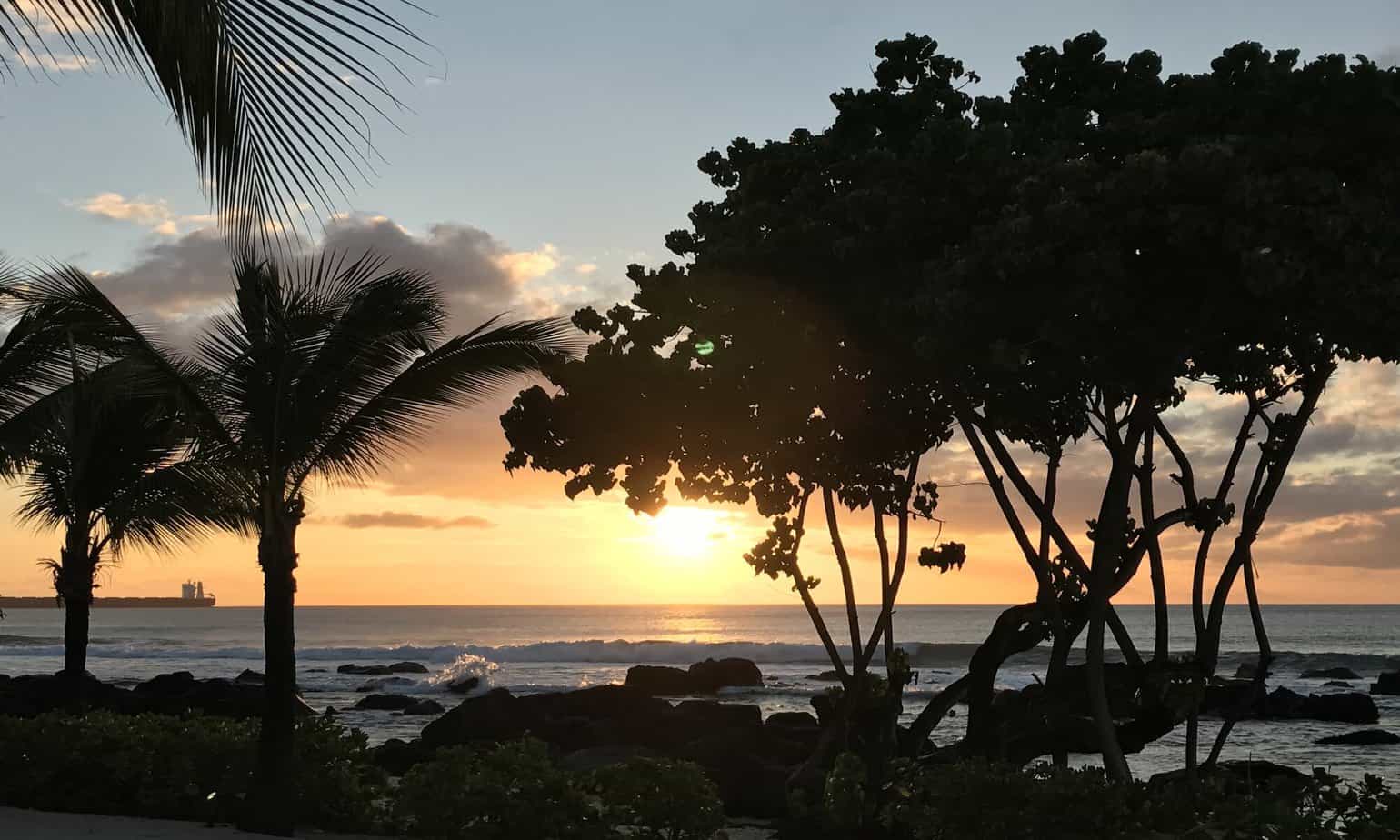Disclosure: Please note that I may benefit from purchases made through my affiliate links below, at no cost to you
Can you believe it? Yours truly was on a podcast! The Joyful Frugalista podcast, to be exact.
Serina Bird, author of the book, The Joyful Frugalista has just launched her podcast of the same name, where she chats with friends, family and the famous about frugality, investing, wellbeing and living sustainabIy. I was very honoured to be invited as her guest and was very surprised to be on the second episode.
I had admired Serina from afar and connected with her via Twitter last year. She is enormously accomplished – she is an author, blogger, podcaster, mother of two, wife; writes for Money Magazine, Best Recipes and until recently, worked full time as a public servant with the Department of Foreign Affairs and Trade and … as if that isn’t enough, she speaks fluent Mandarin (Chinese). I can tell you that her Mandarin is much better than mine!
We chatted (in English) about my Chinese heritage, how it influenced my relationship with money and of course, beginning my FIRE (Financial Independence Retire Early) journey at the ripe old age of 47.
Click on the image above to listen – and discover what my frugalista tip is! Oh and now you know what my voice sounds like, haha.
I learned many lessons being a guest on this podcast – we’ll get to that but let’s back up a little.
My introduction to podcasts
I discovered podcasts only very recently – in early 2018.
The year I turned 47 – how late to the party am I? Ah, but then I am a late starter, haha!
The very first podcast I listened to was Claire Hooper’s The Pineapple Project Season 1 – where she talked about personal finance. A comedian talking about personal finance. Perfect.
I had woken up one morning in January 2018, feeling very anxious. The loop in my head was going something like this – retirement isn’t very far away … I have no idea when I can retire, how much I have in my superannuation (retirement account), how much money I need to retire etc.
So when I saw The Pineapple Project being advertised on the ABC, I took it as a sign that I must do something about my finances.
Mind you, I had to google ‘how to listen to a podcast’ to get started. I had heard the word podcast bandied about but never actually listened to one. Incidentally the word ‘podcast’ comes from iPod and broadcast.
Through listening to this first podcast, I was introduced to The Barefoot Investor and then more research on the internet brought me down the rabbit hole that is FIRE. To blogs and more podcasts.
And ever since then, I have listened to many podcasts. I listen via the Overcast app on my smartphone and mainly listen in the car as I commute to work and back. Sometimes, I listen as I meal prep on the weekends.
What do I like about listening to podcasts?
Most of all, I like the intimacy of it – it’s like listening to friends chatting amongst themselves about various topics. Sometimes I would join in the conversation and put in my two bobs. Sometimes I would howl with laughter. Other times, I just listened, like the ‘olden days’ of radio drama.
And I have learnt, oh so much from listening to these podcasts; from all things finance eg how to invest, be frugal, side hustle, increase your income, be more productive to … don’t date a stranger unless you’ve checked them out thoroughly (true crime podcast). Podcasts introduce me to new ideas, books, blogs and more podcasts.
But what did I learn as a guest on a podcast?
First of all, I was very nervous. Actually, terrified probably described my state of mind better.
I had never met Serina in person. But she put me at ease immediately with her bubbly charm and we launched into our conversation as if we’d known each other for ages.
Herein lies lesson number 1.
As a guest, you need to trust the host and it helps tremendously when you can ‘meet’ beforehand and have a chat before being recorded for the podcast. It also helped that I had read Serina’s book and blogs, and listened to her first podcast, This Abundant Life that she co hosted with Kirsti McQueen. And that I like her podcasting style.
Let’s be honest here – I HATE the sound of my voice. And as a blogger, that is ok – I don’t have to use it – I live mainly in my head. I can also write and edit to my heart’s content. On a podcast though, I have to come up with answers immediately. It doesn’t help when you freeze up or say a lot of ummm and ahhh while you think of your answer.
This is lesson number 2.
Apparently, a good editor (such as Serina’s husband, Neil) is able to edit out the pauses and the umms and ahhs. Whew! He made me sound much better than the real deal.
But seriously, perhaps I should have practised out loud answering some of the questions before hand?
Lesson number 3 is related.
Chatting to Serina made me realise that I don’t talk about my FIRE journey in real life. I do mention my desire to retire at 55 to my colleagues a bit more now that I have a plan. But really, my chat is mainly online with Twitter friends in the personal finance community or commenting on other blogs and Facebook groups. It is very different to articulating my views out loud and just chatting about my journey with a person face to face.
I am an introvert and socially awkward in big groups. But I realIy must make more of an effort to connect with others on the same journey in real life. The more I can articulate and discuss ideas, the more ‘fluent’ I will be in discussing FIRE with anyone not on the FIRE path yet.
The most important lesson though is lesson number 4.
To say I was scared witless is an understatement. I listen to a lot of podcasts. The ones I like have hosts and guests who speak clearly and can carry on an intelligent conversation or articulate an idea or concept well or just tell a good story. I knew I may not be able to deliver on my side of the conversation. And I did not want to let Serina down.
What if I fail?
So lesson number 4 is just that despite the fear, I did it anyway. I was petrified that I would stuff it up badly but other than the fact I should talk slower and clearer, I think it was ok for my very first podcast experience.
Lesson number 5 – I never knew being a guest on a podcast can be so much fun! But that is thanks to Serina – we laughed a lot on the podcast. Perhaps that is distracting for listeners but I enjoyed our conversation. And watching it all being recorded, wearing super duper headphones, and talking into a professional microphone – all so fascinating!
Final thoughts
I was asked when I first started blogging if I’d like to be on a podcast – I answered no very quickly and decisively. In fact I said no a year later too.
But somehow, Serina charmed me into being a guest on her podcast and I am happy to say I even had fun while being terrified. Is that possible? Working through fear is good for you. What doesn’t kill you makes you stronger!
My sincere thanks to Serina for making my first podcast experience a joyful one.



